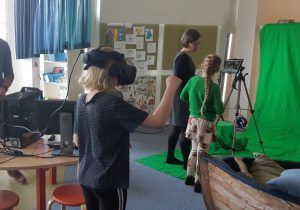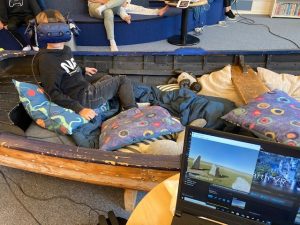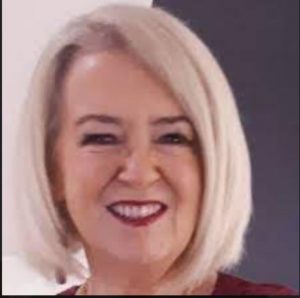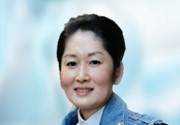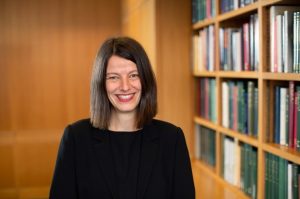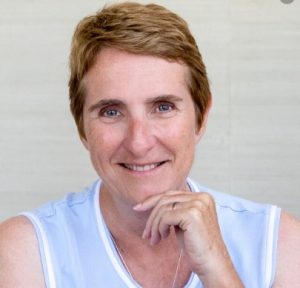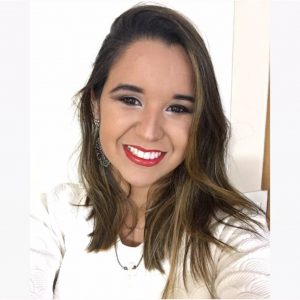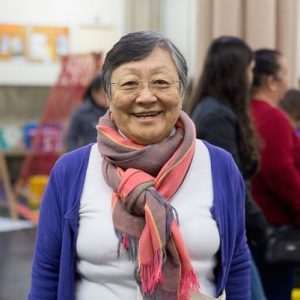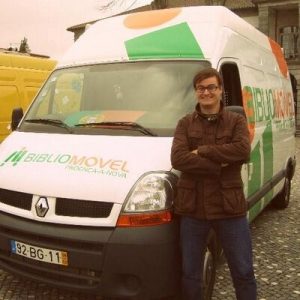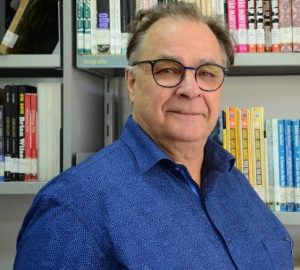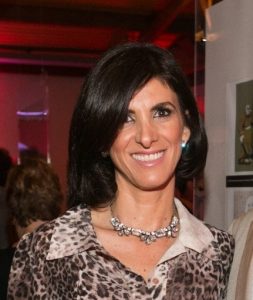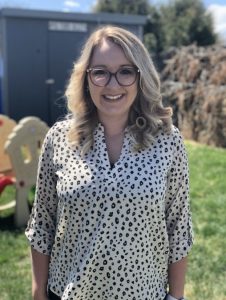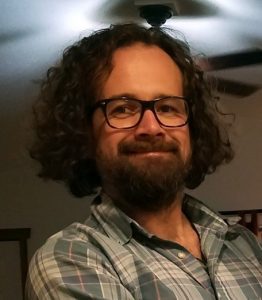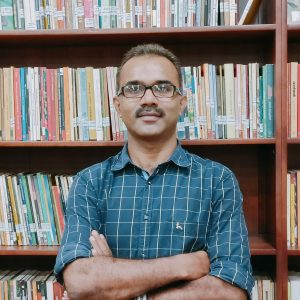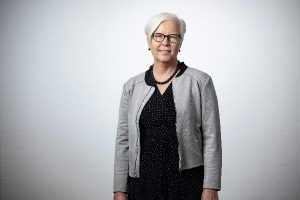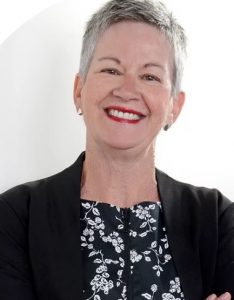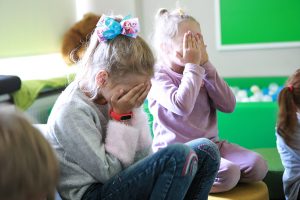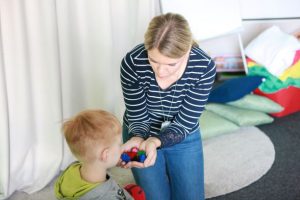Virtual Reality to develop new forms of storytelling and story creation in Public Libraries
In the autumn of 2019, Ängelholm Libraries, in the south of Sweden, thought about how we could develop the libraries’ work with reading promotion. One idea that stood out was to use new technology to reach children. We decided to try using VR (Virtual Reality). We applied for and received a project grant from Region Skåne for this VR-experiment. The purpose described in the application was mainly to develop new forms of storytelling and creation of stories with the help of new technology. We wanted to find new ways to work with visualization and storytelling, combine analogue and digital ways to work and let the children meet the literary worlds in new ways.
We aimed with these new methods to inspire more people to read and use VR as a bridge between worlds, not only between digital and literary worlds but also between the library worlds and today’s young people’s worlds. We took our starting point in section 8 of the Swedish Library Law, which states that public libraries shall pay special attention to children and young people to promote their language development and stimulate reading, among other things by offering literature based on their needs and conditions. Ängelholm Municipality’s plan for IT and digitalisation points to VR as a way to bring the municipality’s public environments to life and meet the demands of the culture of the future.
During early spring 2020, we contacted a teacher at a local school to, together with her class, be a pilot in this experiment. Together we came to the conclusion that a suitable theme for the experiment was ancient history. In the spring of 2020, we planned how the project would be implemented, worked on how we would present it to the class, compiled a list of literature, investigated what skills we needed to develop and so on. At the beginning of September it was time to start. We invited the class to Vejbystrand’s library. We presented the project, told what it was we wanted to do and showed them some examples of nearby ancient history – Luttra walkway, the rock carvings in Tanumshede and Ale’s stones. Ale’s stones were made available for the children to see and experience in the VR-headset.
At the start-up meeting, we also had with us some ancient finds, an arrowhead, an ax and a scrape, that the children could look at and feel. With them back to school the class got a large pile of books, both reading aloud books, chapter books for the children to read for themselves and books about antiquity, and two cultivation boxes. The children would create their own ancient worlds in these cultivation boxes. The teacher was given instructions on how they needed to leave space in the worlds so that we could fit a 360-camera, aside from that they got completely free hands to create what they wanted within the theme.
We had thought that on at least one occasion during the autumn we would be in the class when they worked with their ancient worlds, but the pandemic prohibited this. We were a little lucky in other ways that we learned through a colleague that there is an archaeologist at Fredriksdal’s museums in the city of Helsingborg who goes out to schools and shows and tells stories. We told the teacher about this and she got in touch and it resulted in an exciting visit. This is something we will in one way or another try to take with us in the continued work with this project. When the autumn term was coming to an end, the class was done with their worlds, we picked up the boxes and the filming started. It was more time consuming to film than we had expected. Finding the right perspective and the right feeling in the experience took time, but we still thought that the experience was so important that it simply had to take the time it took. The editing of the films also took quite a lot of time, but in the end we had achieved the results we were striving for.
After having to postpone a bit, due to the pandemic, it was finally time for the class’ to visit the library. The class was again invited to Vejbystrand’s library. We had prepared by taking two ancient worlds to the library, we had set up the VR equipment and fixed with a photo corner with green screen. When the class arrived, the teacher quickly divided them first into the two groups that had worked on each cultivation box and then these two groups were divided once more. While a small group, 4-5 students, stayed with us at the library, the others went out to a nearby playground. This was a very good strategy that ensured that no children would have time to get bored of waiting for their turn. Each child in the small group got to see the VR-film from “their” ancient world and then choose which image they wanted as a background in the photo we then took of each child and cut into the ancient world using green screen technology.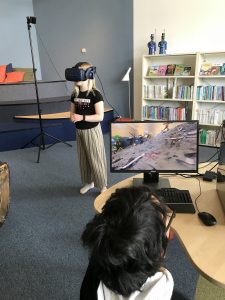
Everything flowed very nicely, all the children were happy throughout the morning and this was very important to us. When all the children had seen their world in VR and taken their photo, we gathered the whole class inside the library again for a joint conclusion to the workshop. We took one last green screen picture, a group picture which we then sent together with all the children’s individual pictures to the teacher. We asked the children a little about how they had experienced the work they did during the autumn and were told that they thought this was a fun way to work that they would like to do again, that they felt that they had learned more, that it was very fun to work with the craft when they created the worlds and that it was great fun to get a photo of themselves in their world and of course to get the tour of the world in VR.
Overall, we are very satisfied more with how the experiment developed and we are very happy for the great collaboration with the school, the teacher and all the children. Our long-term goal is for all schools in Ängelholm municipality to be offered to collaborate with us in this way, using VR and a subject theme. We have secured additional funding from Region Skåne to continue this work. Lessons from the pilot experiment to take into account is the time filming and editing takes, that the green screen was a very good complement, that we can with advantage seek cooperation outside the school and library world to deepen the experience, for example museums, local history associations or other parties with special knowledge of any chosen theme.
This Youtube video shows how children use techniques to make videos.
Text: Emelie Ljungdahl, librarian, and Martin Memet Könick, Library Director and Public Libraries Section SC-member.
